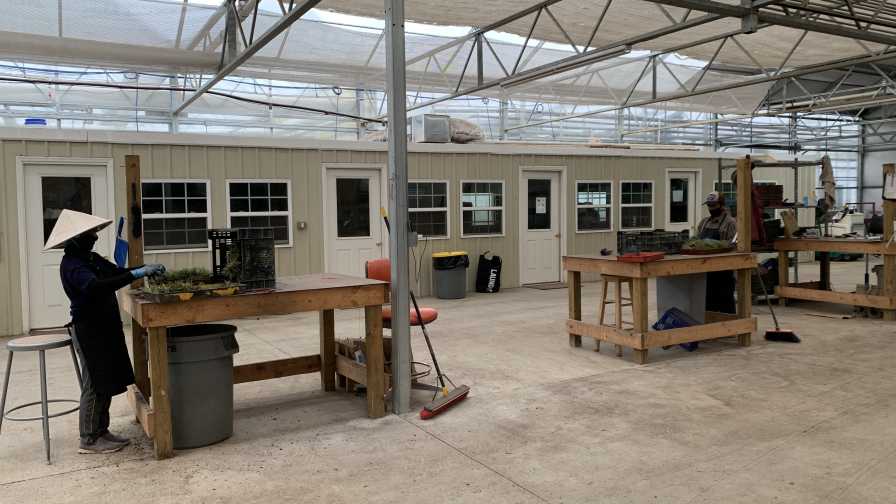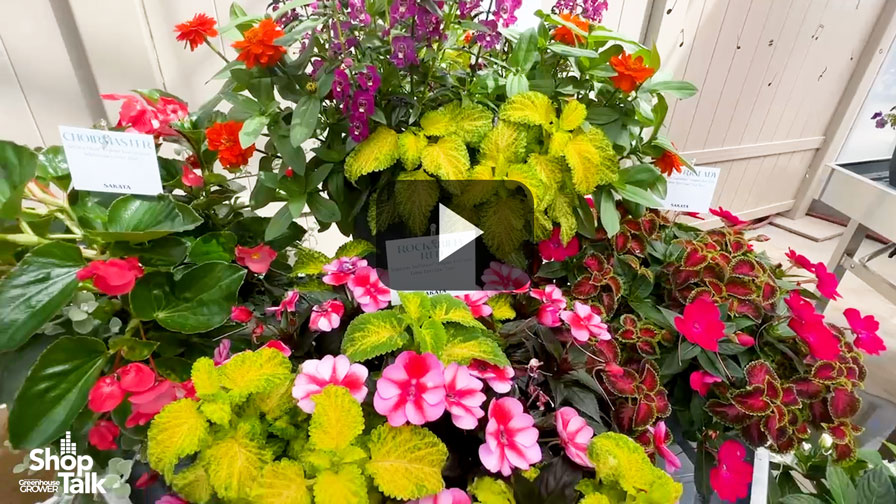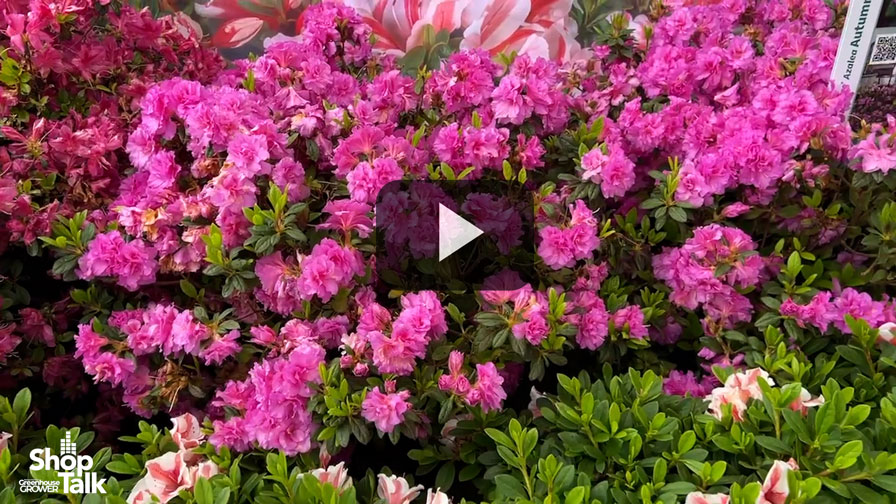How Two Leading Growers Look Different — and Better? — in Response to COVID-19

Photo: Hoffman Nursery
When the coronavirus first began to shift from being a concern to an all-out global pandemic, it seemed like reports from the front lines of the controlled-environment industry came in like rapid fire. Independent garden centers in some states were forced to temporarily close their doors. Businesses began looking long and hard at federal relief programs. Growers were faced with excess inventory that either had to be held for longer than normal, or potentially even destroyed.
Fast forward a few weeks, and there’s a different story to tell. Many states began allowing garden retailers to open just in time for Mother’s Day. New market opportunities opened up, interest and demand for gardening plants and products spiked, and growers spread goodwill in their communities with plant donations.
In between, rather than letting the challenges devour them, a good number of growing operations made the necessary short-term changes to survive. While it’s still too early to determine how many of these changes will become a regular part of doing business moving forward, one thing is clear: the industry has evolved, and from the looks of it, for the better.
Small Steps, Big Rewards
Change is always tough, but it’s even tougher when you’re faced with changing day-to-day routines that your company and your teams have long been accustomed to.
The reality, however, is that the coronavirus has forced many greenhouse operations to make some of these changes. For example, at Hoffman Nursery in Rougemont, NC, everyone is currently working in teams of five people who are usually family members, or carpool together. Each “pod” has its own workstation with their own tools that are at least 6 feet away from others, a break area with picnic table, water bottle with dispenser, personal storage area, cleaning toolbox, permanent or portable toilets, and hand-washing stations. Each actual workstation is set 6 feet away from the next person.
“Although this setup may not be the most efficient, we have been able to determine what is important and what is less important,” says Jill Hoffman, Co-Owner of Hoffman Nursery. “This has actually helped us in our efficiency, and we will continue to look for better ways of doing things.”
At Wenke/Sunbelt Greenhouses in Kalamazoo, MI, Co-Owner Lisa Ambrosio says social distancing made the company rethink how its team members do every job. One example was the need to eliminate everyone coming to a small, central area as part of the shipping process and touching the same papers, pencils, and clipboards.
“To resolve this, we changed the system so labels were printed for each area, and everyone has their own supplies,” Ambrosio says. “It was disruptive at first but has actually allowed us to be more efficient once we got used to it.”
Ambrosio also notes that it’s hard to make a transplant line long enough to have everyone 6 feet apart, so dividers were added.
When Employees Truly Become Family
The people who work for your business are always important, but for many, the emotional toll the coronavirus had on employees this spring really brought that home.
“It was a terrible day when I had to announce to everyone that one of our employees — someone they work with and care about — had tested positive and was sick,” Ambrosio says. “It’s one thing to talk about sales and another thing to talk about employees risking their lives to come to work.”
While not everyone has experienced this extreme of a situation, the reality is that the employer/employee relationship has no doubt evolved through all this.
“Change makes people anxious, and every day throughout this crisis has required a willingness to change quickly, and without all the answers,” Ambrosio says. “Our team handled this amazingly well, and it’s made us all stronger than we realize.”
The management team at Hoffman Nursery also quickly realized how strong their team is.
“We have had to change schedules multiple times and introduce new ways of doing things and new processes to maintain team health,” Hoffman says. “Our supervisors and team members have managed to adapt to anything we have asked of them.”
Among other things, Hoffman Nursery adjusted the way it uses its “HNI-TV” employee communication system and human resources software.
“These tools have been quite useful to keep our culturally diverse team informed,” Hoffman says. “We have really emphasized our core values and have asked our team to nominate fellow team members for our core value awards. It hasn’t always been easy to decide how to do the right thing. How do we keep people safe at work while protecting their jobs and their livelihoods? But our team has been very receptive, and this has been beneficial for everyone.”
Planning for the Future
During the COVID-19 crisis, Hoffman Nursery in Rougemont, NC, developed and implemented a 100-day Strategic Plan that included background information such as government mandates, current situation updates, adjusted sales goals, anticipated throughput, continuity planning, financial planning, loan and capital expenditure opportunities, and communications and emergency planning for employees.
“We created a number of policies and protocols dealing with issues that have come up during this crisis with which we never thought we would have to deal, or it might be years before we would have to address them,” says Jill Hoffman, Co-Owner of Hoffman Nursery. “We are also developing ways to work in larger or smaller teams depending on what the level of crisis is.”
This experience, Hoffman says, has taught the Hoffman Nursery management team how to be better prepared for the next crisis.
“Maybe we are doomsayers, but if COVID-19 doesn’t return, something else might,” Hoffman says. “We will be prepared for it. We might keep some of the changes that we implemented because they work better for everyone.”









